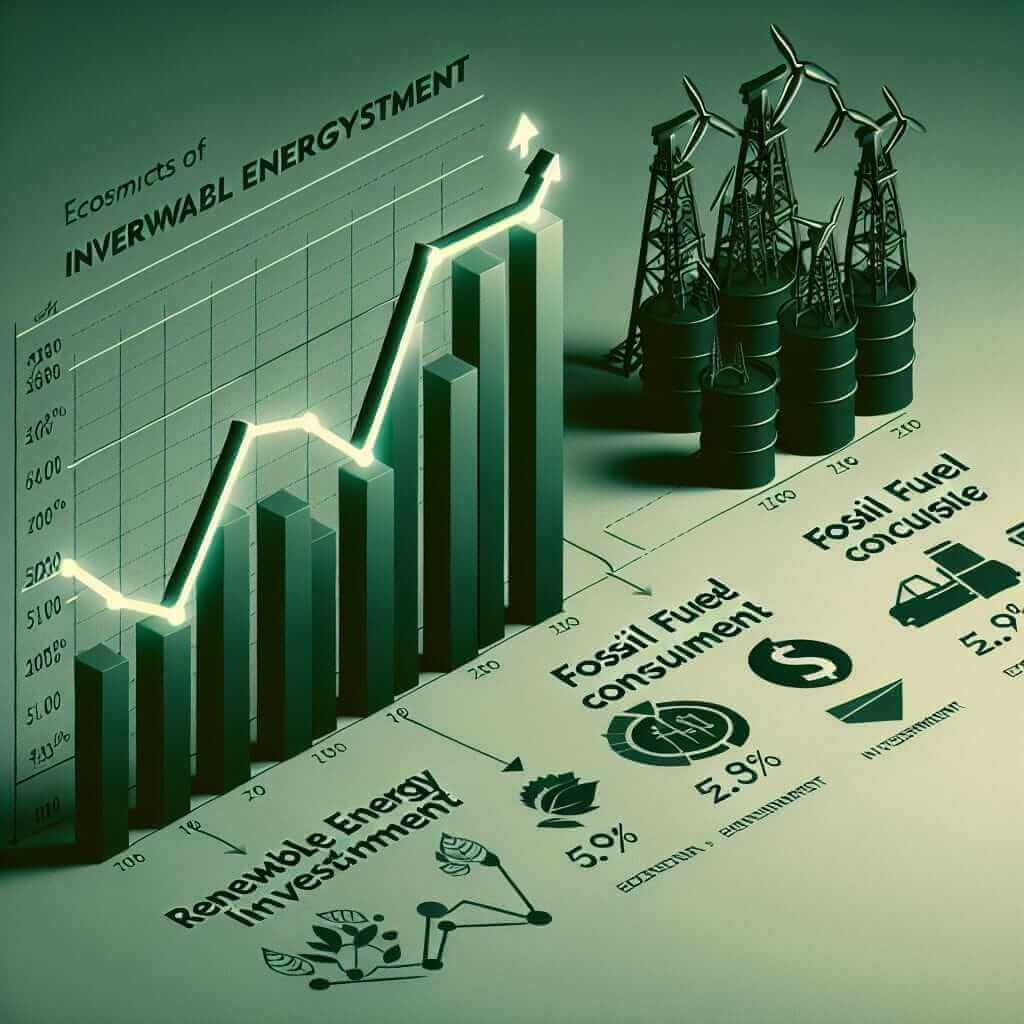The IELTS Reading module is a critical component that often challenges candidates with its diverse range of topics. One topic that has gained prominence over the years due to its relevance and significance is the impact of renewable energy on international economic policies. This topic has appeared in various formats in the IELTS exam, reflecting global environmental concerns and the economic implications of transitioning to renewable energy sources.
Over the past decade, the frequency of questions and reading passages related to renewable energy in the IELTS exam has increased, mirroring real-world trends. As countries strive to meet climate goals and reduce carbon footprints, understanding these implications becomes crucial. Thus, preparing for such topics can significantly bolster your performance in the IELTS exam.
Reading Passage and Questions
Reading Passage: Medium Text
“The Impact of Renewable Energy on International Economic Policies”
Renewable energy, encompassing sources such as wind, solar, hydro, and geothermal, has become a focal point in the global effort to combat climate change. As nations transition from fossil fuels to more sustainable energy sources, the economic landscape undergoes significant transformations, influencing international policies and trade dynamics.
One of the primary economic impacts of renewable energy is the reduction in dependency on oil and gas imports. Countries like Germany and Denmark, pioneers in renewable energy adoption, have substantially decreased their reliance on fossil fuel imports, leading to improved energy security and economic stability. This shift not only minimizes vulnerability to international oil price fluctuations but also promotes energy independence.
Moreover, renewable energy investments stimulate economic growth. According to the International Renewable Energy Agency (IRENA), the renewable energy sector created over 10.3 million jobs worldwide in 2017. These jobs range from manufacturing and installation to maintenance and research, thus offering a broad spectrum of employment opportunities and contributing to economic diversification.
However, the transition to renewable energy is not without challenges. High initial investment costs and the need for technological innovation pose significant barriers. For instance, developing nations often struggle with financing the infrastructure necessary for renewable energy projects. International collaboration and financial support mechanisms, such as the Green Climate Fund, become pivotal in overcoming these hurdles.
Furthermore, the shift towards renewable energy influences international trade policies. Countries rich in renewable resources, such as sun and wind, find themselves at an advantageous position, potentially reshaping global trade dynamics. In addition, technological advancements and innovations in the renewable energy sector are becoming key export commodities, further impacting international economic policies.
In conclusion, the transition to renewable energy holds profound implications for international economic policies. While offering substantial benefits like energy security and job creation, it requires overcoming barriers related to investment and innovation. As the world continues to navigate these changes, the role of renewable energy in shaping economic landscapes will undoubtedly expand.
Shortcode for illustration

Questions
Identifying Information (True/False/Not Given)
- The adoption of renewable energy has led to increased oil imports in Germany.
- Renewable energy sectors created over 10.3 million jobs globally in 2017.
- Developing countries find it easy to finance renewable energy projects.
Matching Information
-
Match each statement with the correct consequence:
A. Improved energy security
B. Stimulation of economic growth
C. Technological innovation barriersi. High initial investment costs
ii. Decreased reliance on fossil fuels
iii. Creation of diverse employment opportunities
Matching Headings
-
Choose the correct heading for each section from the list below:
A. Job Creation in Renewable Energy
B. Challenges in Renewable Energy Adoption
C. Impact on International Trade PoliciesParagraph 2:
Paragraph 3:
Paragraph 5: _____
Sentence Completion
- Countries rich in renewable resources are well-positioned to reshape __.
Summary Completion
Complete the summary of paragraph 4 using words from the box below:
[technological, Green Climate Fund, financing, barriers]
High initial investment costs and the need for __ pose significant ____ to the transition to renewable energy. Mechanisms like the __ are essential for developing nations to manage these challenges.
Answer Key
- False (Germany decreased reliance on fossil fuel imports)
- True (According to IRENA, 2017 data)
- False (Developing nations struggle with financing)
- i – C, ii – A, iii – B
- Paragraph 2: A, Paragraph 3: B, Paragraph 5: C
- international trade dynamics
- technological, barriers, Green Climate Fund
Lessons Learned
When preparing for the Reading section of the IELTS exam, it’s essential to:
- Carefully read each passage to capture the gist and main arguments.
- Pay attention to specific details and data provided in the passage to answer True/False/Not Given questions accurately.
- Understand how to match information and headings by identifying key themes and linking statements.
Vocabulary
- Encompassing: [Verb] /ɪnˈkʌmpəsɪŋ/ – to include or cover something completely.
- Fluctuations: [Noun] /ˌflʌkʧuˈeɪʃənz/ – continuous changes, especially in numbers or amounts.
- Pivotal: [Adjective] /ˈpɪvətəl/ – of crucial importance in relation to the development or success of something else.
- Diversification: [Noun] /daɪˌvɜːsɪfɪˈkeɪʃən/ – the process of varying the range of products or services.
Grammar
Focus on conditional sentences, which are frequently used to discuss hypothetical situations and their implications. For example:
-
Type 1 Conditional: If + present simple, will + base verb
- If countries invest in renewable energy, they will see economic benefits.
-
Type 2 Conditional: If + past simple, would + base verb
- If developing nations had more support, they would adopt renewable energy faster.
Recommendations
To excel in the Reading section, follow these strategies:
- Practice Regularly: Consistently practice reading passages on a variety of topics to improve comprehension skills.
- Expand Vocabulary: Familiarize yourself with frequently used academic vocabulary in IELTS readings.
- Time Management: Time yourself during practice to build speed and accuracy.
- Seek Feedback: Analyze your mistakes to understand where you need further improvement.
By combining these techniques with focused practice on topics like renewable energy, you can enhance your reading skills and boost your IELTS score.